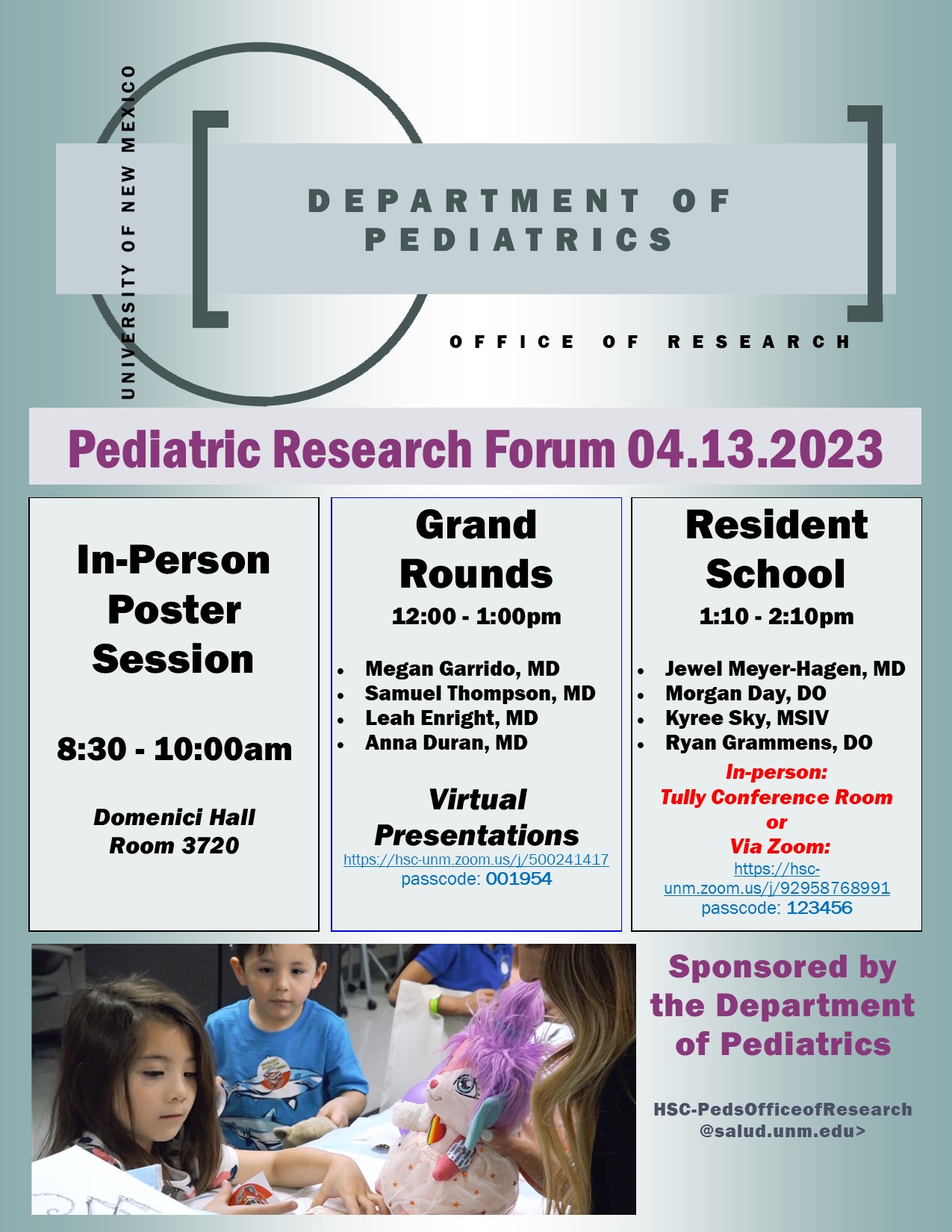Document Type
Poster
Publication Date
4-13-2023
Abstract
Many large-scale investigations have identified racial, ethnic, and geographic disparities in access to intervention and services for ASD. However, the mechanisms sustaining these disparities have received much less attention. Moreover, little attention has been given to methods to reduce disparities, increase health equity, and improve long-term outcomes. The overall objective of this study was to describe the perspectives of caregivers of children with autism spectrum disorder (ASD) living in rural New Mexico on their experiences obtaining services following a diagnosis. To do so, we conducted a qualitative study using a grounded theory approach to interview 9 caregivers of children with ASD (aged 3-5 years) who were living in rural parts of New Mexico. Participating families were diverse in their geographic location, degree of rurality, languages used, and cultural backgrounds. Participants were parents of children who had been diagnosed within the previous 2 years. An interview guide was developed and refined by groups representing self-advocates and families of individuals with disabilities, and clinicians working with children and families with ASD. Data were collected via individual interviews between November 2021 and April 2022. All interviews were conducted by team members with expertise in clinical evaluation of ASD, New Mexico ASD policy, qualitative research, and the diagnosis and treatment of children with ASD. Interviews were digitally recorded, transcribed verbatim, and then analyzed using thematic analysis. Across the caregivers’ responses, six primary barrier themes emerged: (a) service denial, (b) lack of services (c) long distance to treatment facilities, (d) limited service options, (e) paperwork burden, and (f) long wait time for services, as well as additional themes related to facilitators, schools, and primary care. Implications for future research and family supports will be discussed, including implications for service providers and families.
Recommended Citation
Rennie, Brandon; Emily Andrews; Elisheva Levin; Monica Asencio-Pimentel; and Ann Branscum. "Seeking and Obtaining Services: The Perspectives of Caregivers of Children with ASD In Rural New Mexico." (2023). https://digitalrepository.unm.edu/hsc_2023_pediatric_research/4


Comments
Poster presented at Pediatric Research Forum